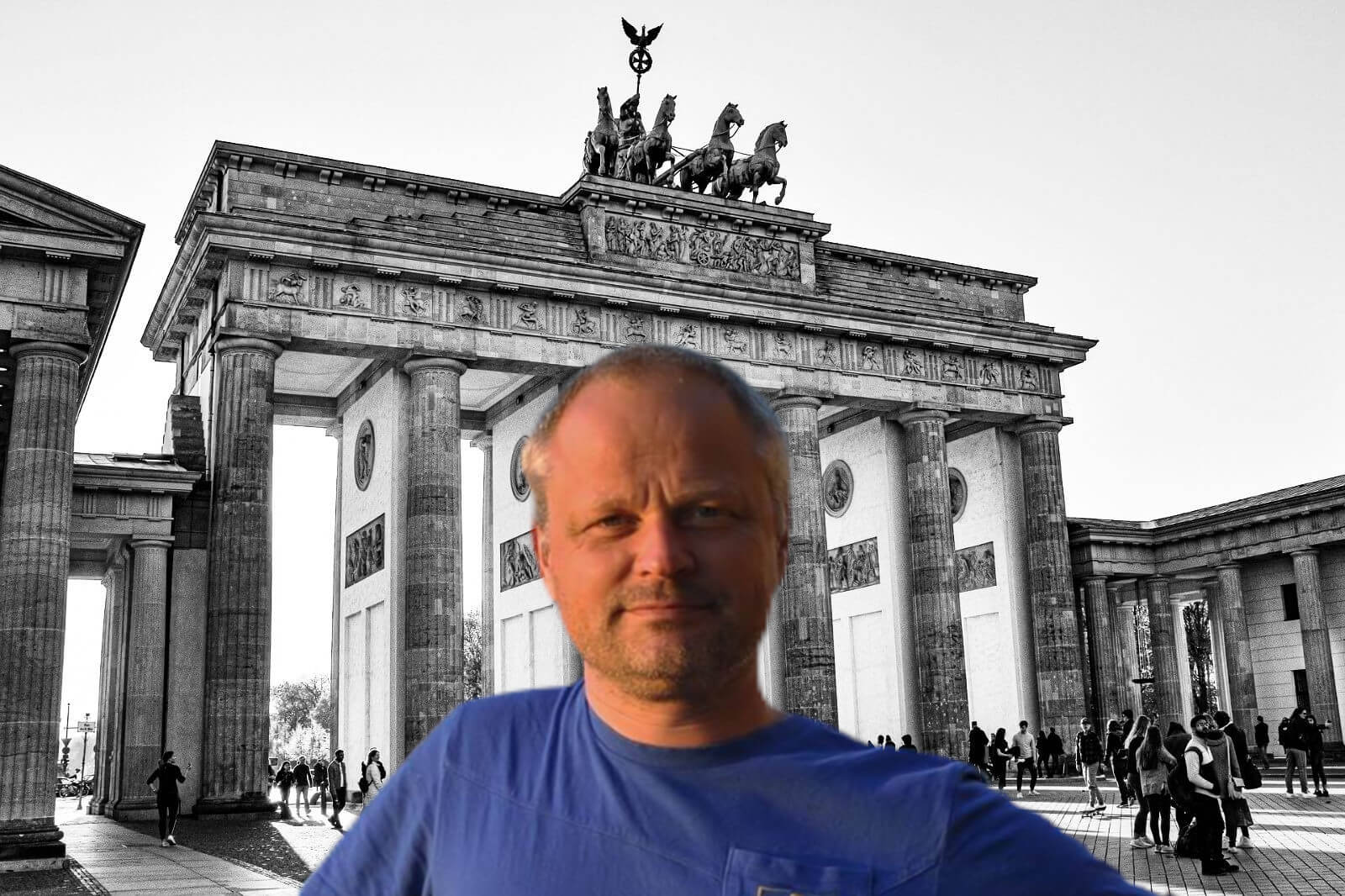
About Faircado
- Founders: Evoléna de Wilde d’Estmael en Ali Nezamolmaleki
- Founded in: 2022
- Employees: 6
- Money raised: An investment round of €500,000 and EU start-up funding worth €25,000
- Ultimate goal: Give the circular economy a boost with the widest possible range of secondhand items
There is a relaxed atmosphere at the shared office of Faircado on Friedrichstrasse in Berlin. Iranian Ali Nezamolmaleki – a friendly face with hair down to his shoulders – is the first to welcome us. He tells us in this instalment of start-up of the day that he moved to Berlin more than 10 years ago to work as an ICT expert. “But this is definitely one of the most enjoyable and greatest challenges I’ve ever had.”
Faircado is a comparison site where, for a change, it’s not about making a lot of money, but about creating a better world, says co-founder Evoléna de Wilde d’Estmael, who arrives slightly later due to being delayed on her bike. That sounds like a sales pitch, and it may well be, but de Wilde insists that this goal is real.
Table with a specific size
Faircado is trying to take the secondhand market to the next level. “I came up with the idea when I had to move in Berlin during corona and needed a few items, like a kitchen table. I was looking for something with a certain size and wanted to buy it second-hand, but soon found out that this search was futile. True, there are plenty of secondhand stores, including online, but if you really need something specific, you quickly end up getting stuck. Shortly after that, I came up with the idea together with Ali of linking several online stores for used goods with a browser extension.” That was how Faircado was born and De Wilde became a self-employed entrepreneur.

If you had predicted this 10 years ago and told her, she probably would have stared at you with a glazed look on her face. De Wilde is from Belgium, raised in Brussels, in the heart of the EU. No wonder she was gripped by European politics from an early age.
An awareness of social and green issues was instilled into De Wilde by her parents. Among other things, she was shown Al Gore’s documentary An Inconvenient Truth at the tender age of 12, which in retrospect was a key moment for her. De Wilde became a member of the children’s city council and began advocating for climate issues such as more bike lanes and green spaces in the city.
The EU bubble
After high school, she studied communication sciences and European studies in Belgium (Louvain-na-Neuve) and the Netherlands (RUG, Groningen) and took a course in sustainability at MIT in the US. She had more or less primed herself to work in Brussels as a climate lobbyist. But when push came to shove, she backpedaled. “I could have entered the EU bubble, but got the feeling that I could achieve more as an entrepreneur than in the rigmarole of Brussels.”
De Wilde moved to Berlin and was inducted into the Berlin start-up scene. “At first that was for a 3-month internship, but it turned into 6 years,” she says. She went on to work as a consultant for fledgling tech companies. De Wilde was enthralled by the dynamism of young entrepreneurs, but when corona broke out, she became restless because all those sustainability and social ideals then sort of slipped into the background.
The first thing that subsequently crossed her path was a website for women artists: Solidartsy, which she set up with two friends. Then she met Nezamolmaleki and 2021 the idea for Faircado was born.
From eBay to Momox
“After that, things went incredibly fast, says De Wilde. An incubator was found where they could take their idea (HWR Berlin). An EU grant materialized and interest from investors was almost immediate. “That was against the trend, because when I look around me, I see more and more start-ups struggling because of the economic situation and the dwindling willingness of investors to take risks.”
The greatest challenge was finding companies that wanted to offer their products through Faircado. Even that worked out miraculously well. The tally now stands at over 35 partners, including companies such as Refurbed, eBay, Sellpy, Rebuy, Momox, AfB, Asgoodasnew, GreenPanda, Notebook Gallery, BackMarket and Booklooker.
Electronics and books
De Wilde would prefer to offer the entire gamut of used goods, but you have to start somewhere. “That means that right now, we’re mainly concentrating on electronics (computers, laptops, cell phones and the like), books and CDs. The next thing we will focus on is fashion and then maybe things like furniture, baby things and bicycles.” Basically anything that can still be put to good use quality-wise but is now being thrown away en masse.
10 million items
About 10 million items are now offered for sale through Faircado every day. But that could be much more in the future, according to De Wilde.
Making money is a side issue, but it’s not a dirty word either. Every time people buy something from one of the partners through the Faircado site, Faircado gets a small commission. So far, most of the users are Germans, but in principle people from other European countries can also surf Faircado. One thing is for certain: it is a market that is rapidly gaining popularity, especially among young people.









